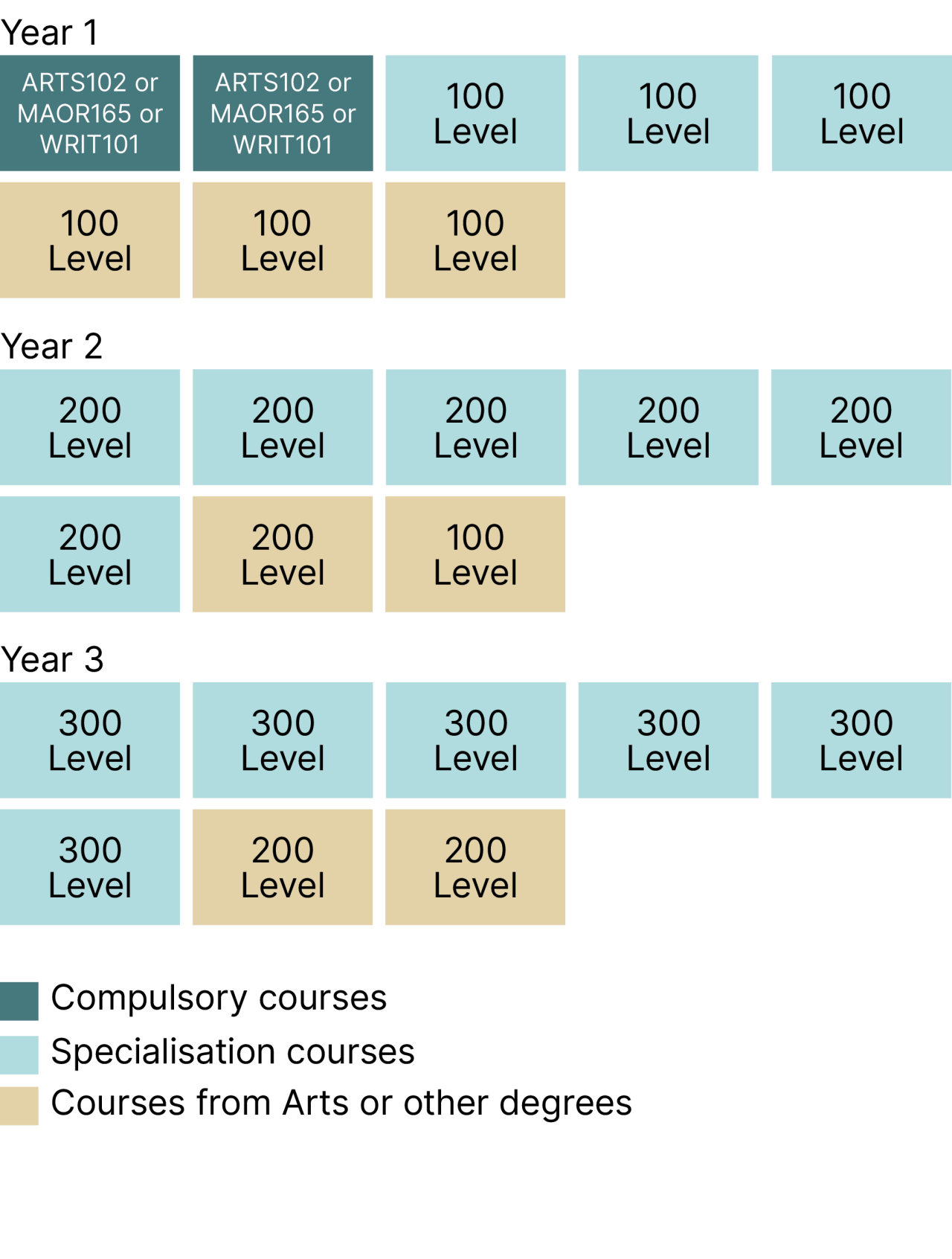Bachelor of Arts
- Degree Structure - Duration
- 3 years full-time

With 40 subjects to choose from, as a Bachelor of Arts (BA) student at UC you can follow your passion and gain valuable skills. Find out about studying a BA through our Te Kaupeka Toi Tangata | Faculty of Arts.
360
2024 tuition fees estimate per 120 points:
With 40 subjects to choose from, Bachelor of Arts students can follow their passion and gain valuable skills.
Over the three years of your degree, you will gain the critical thinking, creative problem-solving, and communication skills that employers want. Unique practical experiences such as internships are on offer too.
Admission to UC with University Entrance (or equivalent) is required to enrol.
If English is your additional language, you are also required to meet UC's English language requirements.
See Admission and enrolment for all information on enrolling at UC.
All Arts subjects, including languages, can be started at first-year level without previous knowledge of the subject. A good standard of spoken and written English is important.
Successful study to Year 13 is recommended for advanced Mathematics courses.
The Bachelor of Arts is a highly flexible degree that allows a wide range of choices from major and minor subjects or specialisation pathways, as well as courses from other degrees.
See ‘Planning my degree’ below for an example degree structure diagram.
Choose two of the following courses:
Specialisations include a set programme of courses centred on a broad theme. These allow you to develop expertise in more subjects than a major, as well as the opportunity to customise your study to your particular interests.
UC has a wide range of options for postgraduate and graduate Arts study with excellent research facilities.
Find out more about what can you do with a degree from UC.
2024 tuition fees estimate (per 120 points):
2023 tuition fees estimate (per 120 points):
SSL estimate (per 120 points):
Bachelor of Arts - Major/minor pathway example degree structure

Bachelor of Arts - Specialisation pathway example degree structure

Each small block represents a 15-point course. However, some courses may be 30 points or more.
This diagram is an example only – other combinations are possible. For specific course requirements, see the Regulations for the Bachelor of Arts.
The Bachelor of Arts requires a minimum total of 360 points:
A minimum of 225 points must be from courses above 100-level, with at least 90 points at 300-level.
The degree takes 3 years of full-time study, or can be studied part-time for up to 10 years.
For the full degree requirements, see the Regulations for the Bachelor of Arts.
BA students have the option of completing either:
Each major has specific course requirements, but all consist of a minimum of 135 points in a single Arts subject. Of these, at least 45 points must be at 200-level and at least 60 points at 300-level.
A minor consists of a minimum of 75 points, including at least 45 points above 100-level, in a single subject chosen from Arts, Commerce, Digital Screen, Health Sciences, Product Design, Science, Sport, or Youth and Community Leadership degrees.
Specialisations offer a pathway that groups courses from different subjects into a central theme. Each specialisation is made up of 225 points of compulsory courses across different subjects, with a minimum of 90 points at 300-level and 180 points at 200-level or above.
It is possible to study a Bachelor of Arts alongside other degrees at the same time, such as the Bachelor of Criminal Justice or Bachelor of Social and Environmental Sustainability.
Find out more information about Double degrees.
You can study a conjoint degree and merge your Bachelor of Arts with options such as the Bachelor of Commerce or Bachelor of Science, so that you can complete major subjects from multiple areas in a shorter timeframe.
Find out more information about Conjoint degrees.